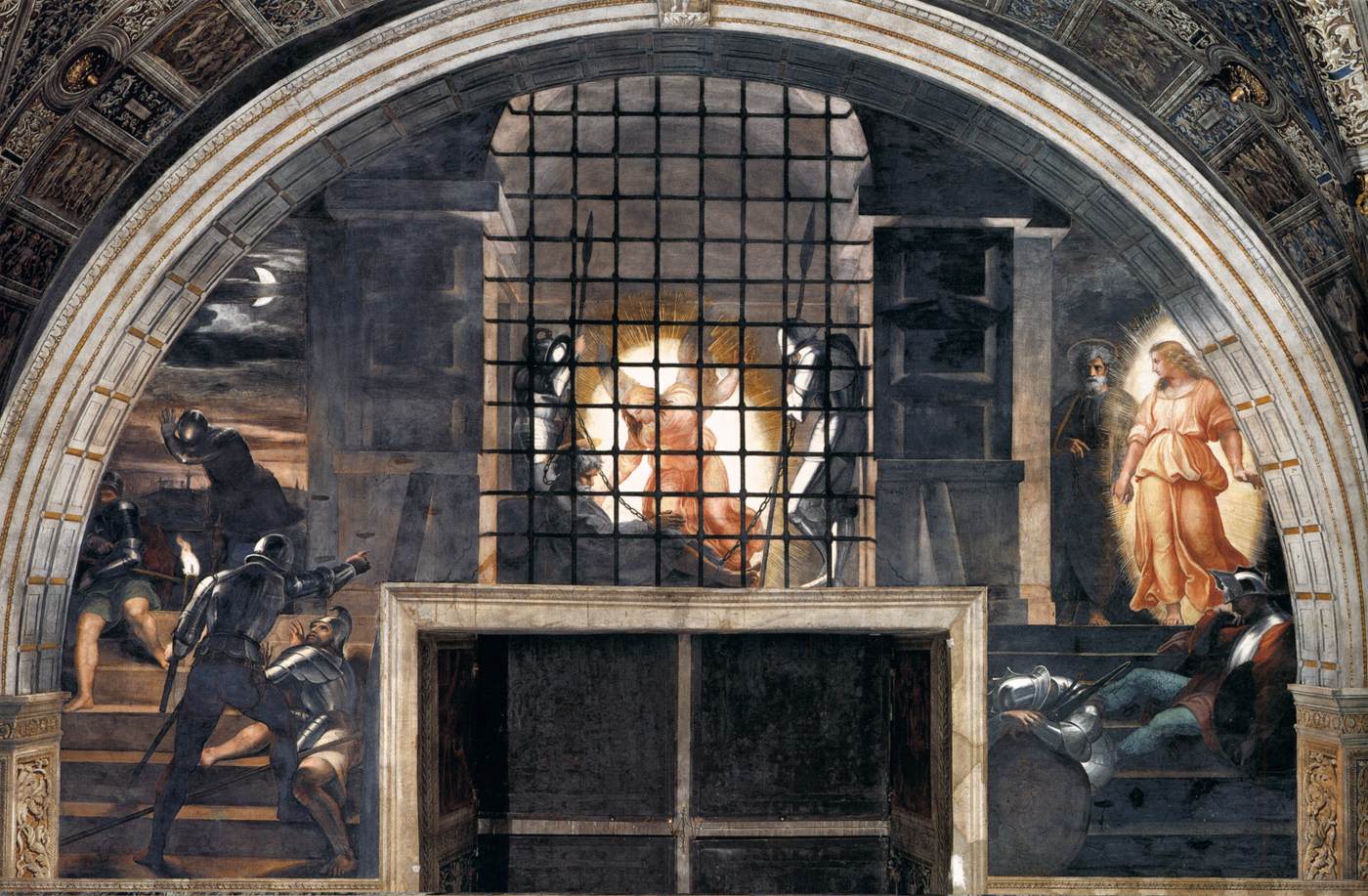The Liberation of St Peter
Story
The story in the New Testament says that King Herod took Peter prisoner and intended to have him killed. In prison the Apostle was chained to two guards, but an angel of the Lord freed him despite the close watch. The fresco is dated 1514 on two painted tablets in the picture.
The composition of this fresco clearly reflects the order and unity of the Mass of Bolsena. But the story is broken down into three distinct episodes, taken from the Acts of the Apostles. The first shows the dismay of the guards; the second the appearance of the Angel of Freedom in the saint's cell; the third, the bewildered Peter led by the hand of the divine messenger. The barred cell is on an upper level (like the altar in the Mass) and is reached by steps to the left and right. A group of agitated figures occupies the stairway at the left. Here, a soldier - whose armor reflects the light of the moon asks his sleepy and bewildered comrades what is going on. At right, the angel leads the stunned and still-sleepy St Peter past another sleeping guard. Here, for the first time, Raphael attempts a "night effect", using both the natural light of the moon and the autonomous light of the angel.
Raphael's assistants played a greater role in painting the Eliodoro cycle than in the Stanza della Segnatura. This is clearly a consequence of the growing number of commissions which the Romans granted to Raphael. The hand of Giulio Romano, one of his most faithful pupils, is visible in the episode showing the Liberation of St Peter.
This painting is the last fresco that can be attributed to Raphael with any certainty. The large cycles which follow (except for the Sibyls of Santa Maria della Pace) were entrusted mainly to assistants.
